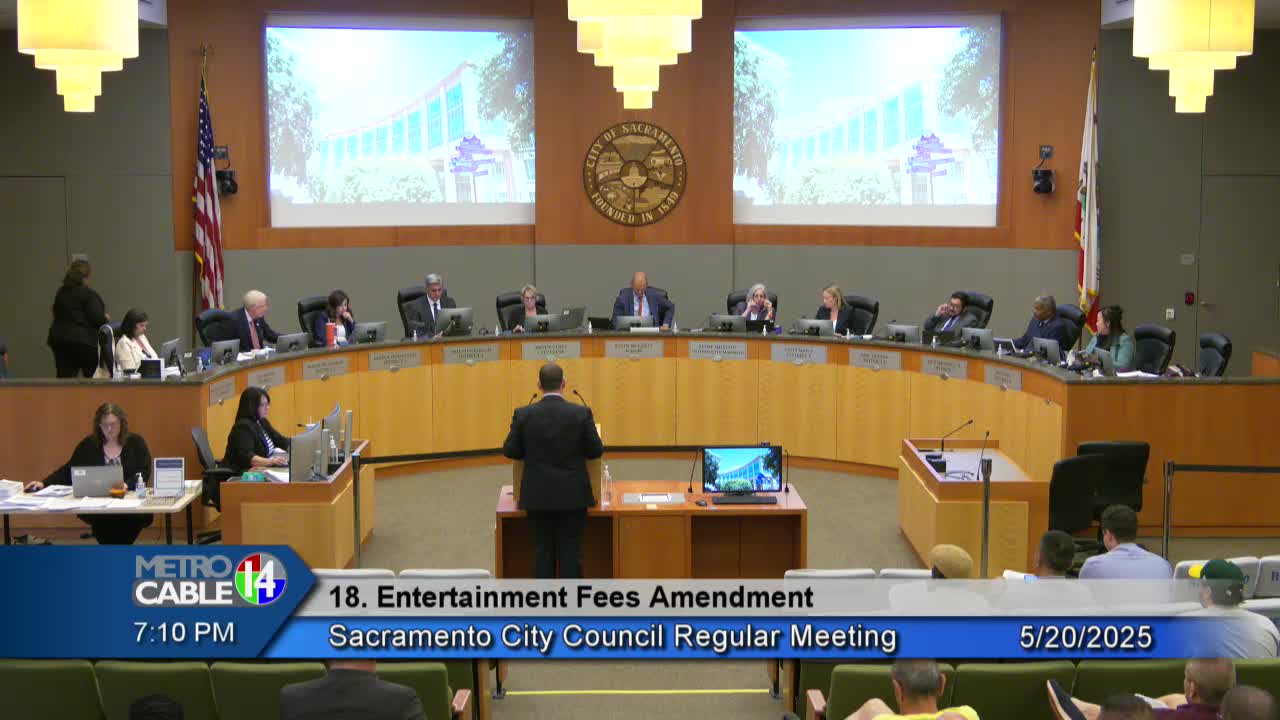Article not found
This article is no longer available. But don't worry—we've gathered other articles that discuss the same topic.
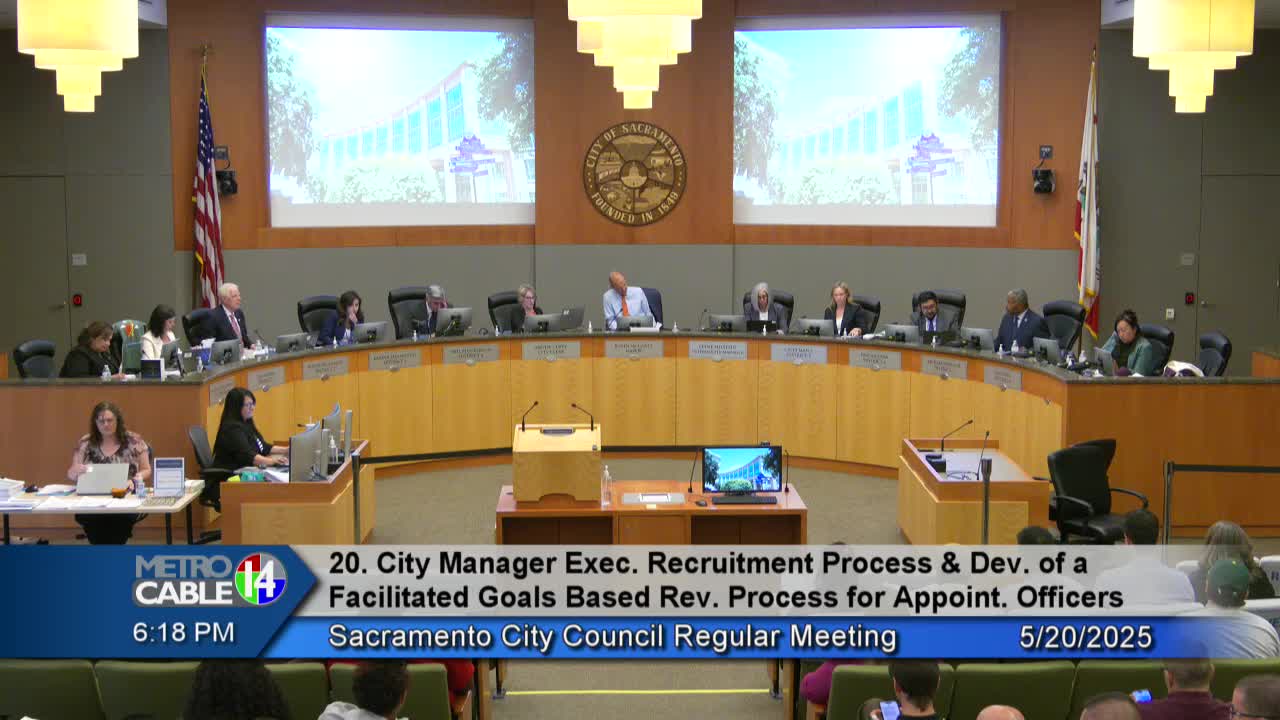
Council approves launch of city manager recruitment, directs facilitated goals‑based review of appointed officers
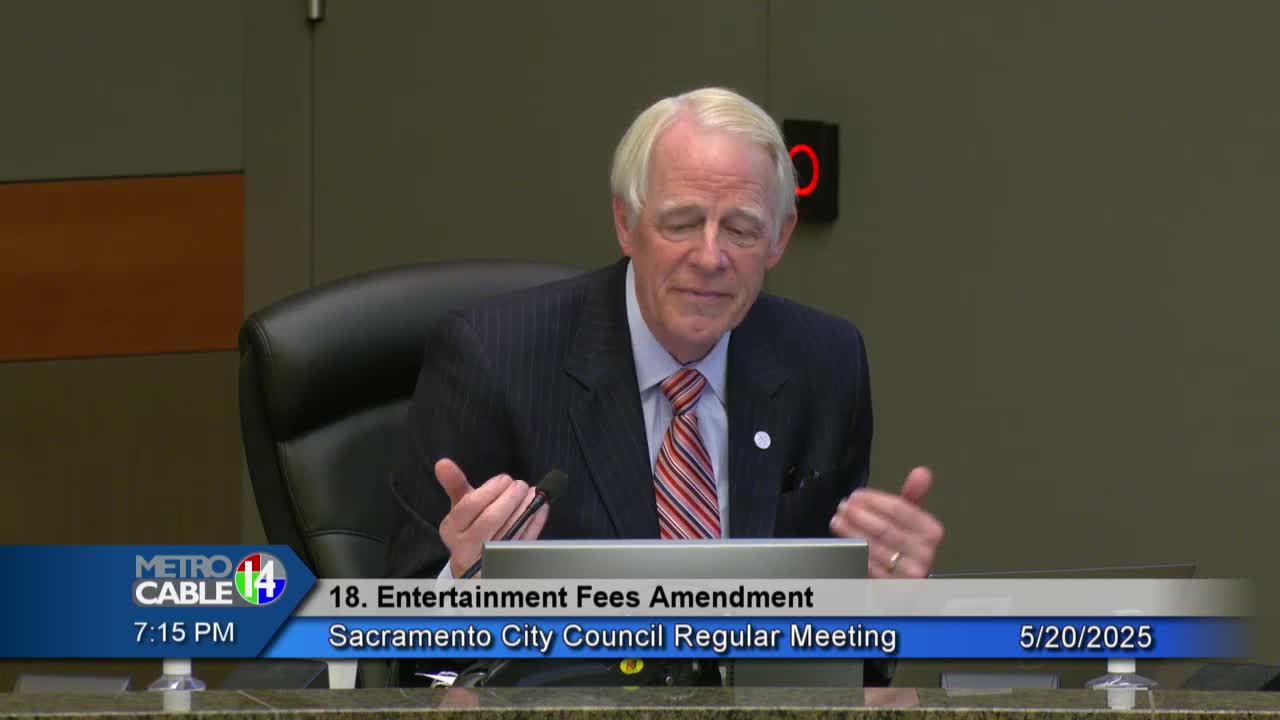
Sacramento council adopts higher fire‑prevention fees, eases hit for small assembly businesses
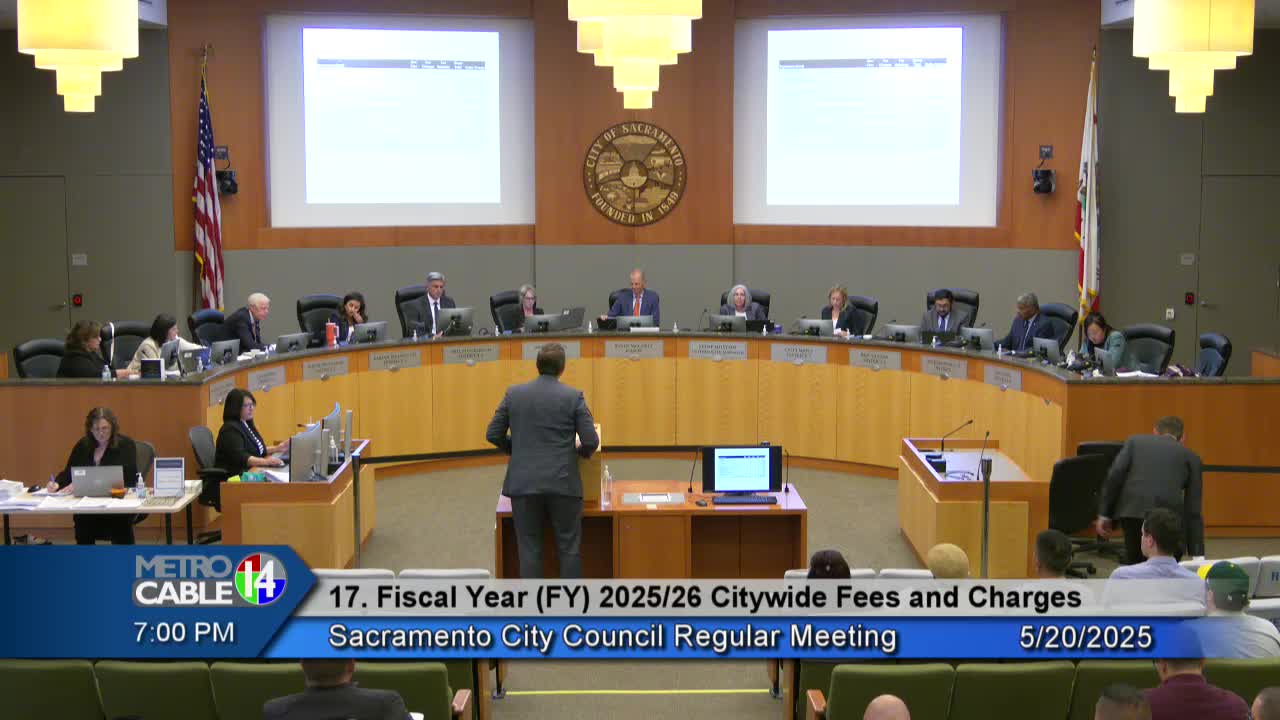
Council opens public hearing and approves citywide fee schedule update amid budget shortfall
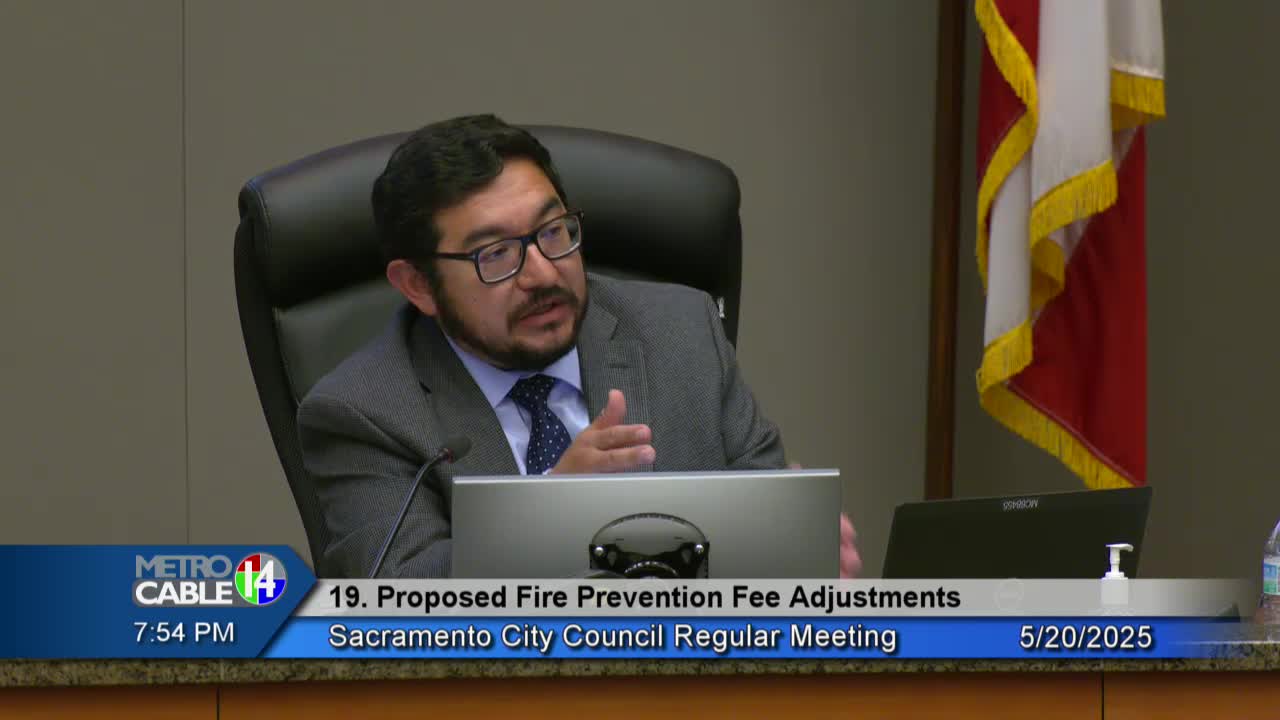
Council lists 1112 Fortieth Street as historic landmark; nomination supported by Preservation Commission
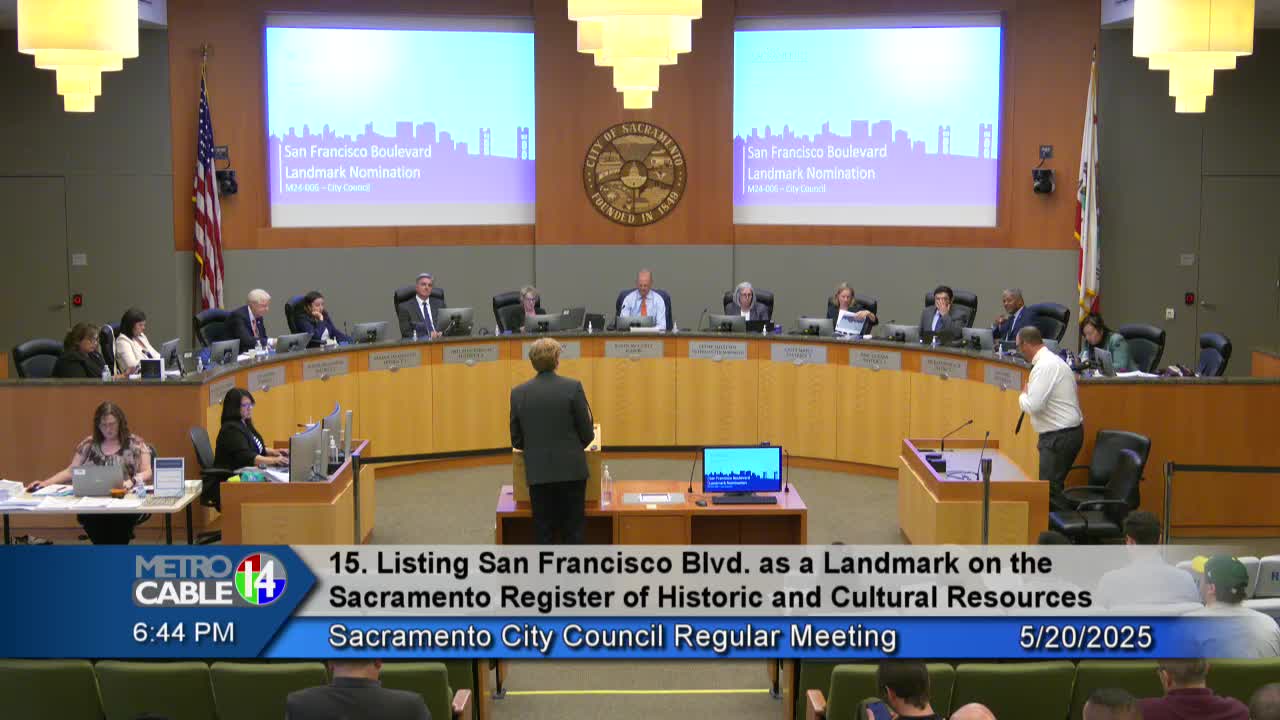
Council lists San Francisco Boulevard on city historic register after Preservation Commission recommendation
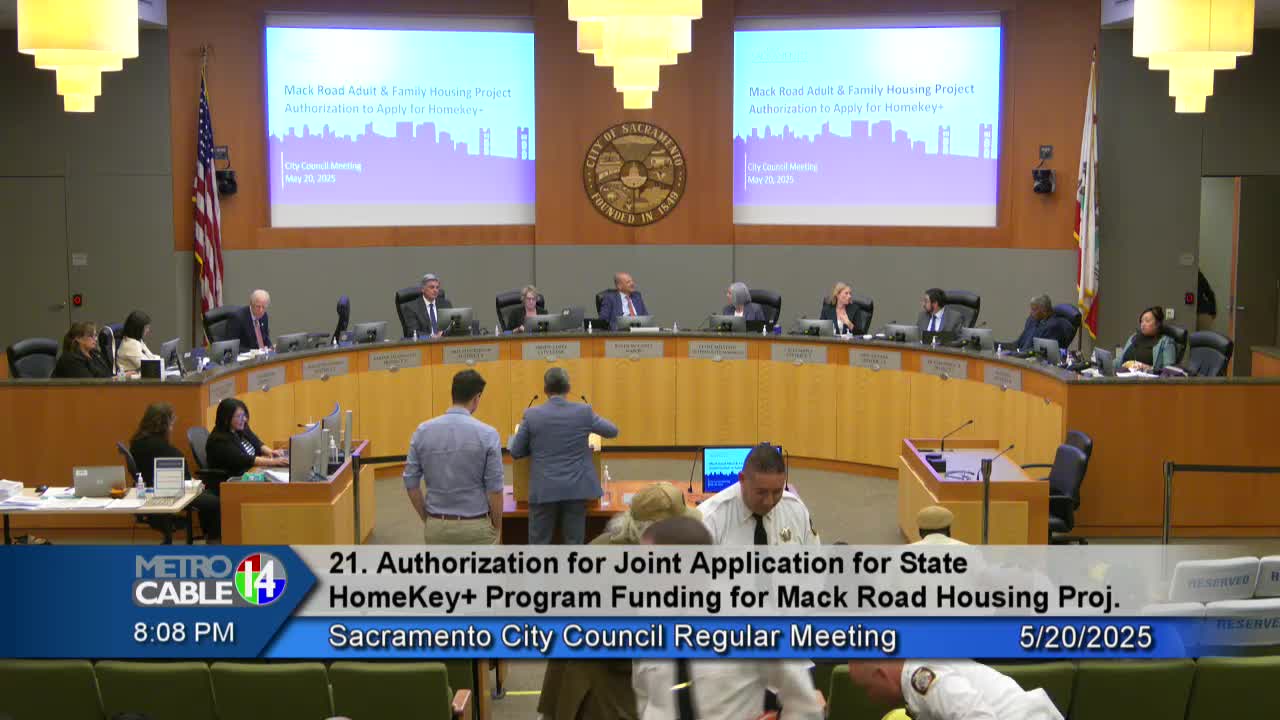
Council authorizes joint Homekey Plus application for 20-unit Mac Road permanent supportive housing project
